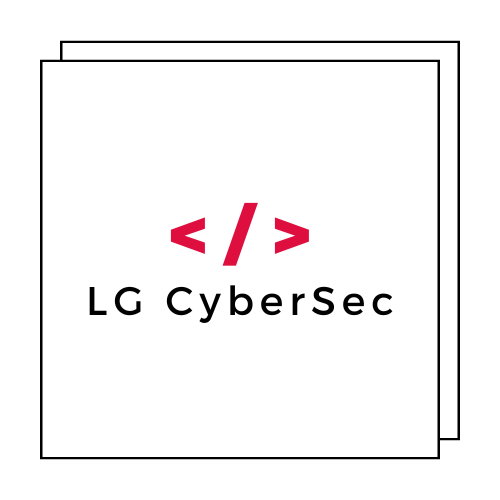In September 2025, French cultural retail giant Cultura became the latest victim of a devastating cyberattack that exposed the personal information of over 1.46 million customers. This breach serves as a stark reminder that no organization, regardless of size or industry, is immune to cyber threats. For small and medium-sized businesses (SMBs) and consumers alike, the Cultura incident offers crucial lessons about modern cybersecurity risks and the importance of robust data protection measures.
The Cultura data breach didn’t just impact a single company – it affected millions of individuals whose personal information, including email addresses, names, and phone numbers, fell into the wrong hands. This incident highlights the cascading effects of cybersecurity failures and why every business must take proactive steps to protect their digital assets.
Understanding the Cultura Data Breach: What Happened?
On September 6, 2024, Cultura, France’s leading cultural and creative leisure retailer, suffered a significant data breach that compromised the personal information of 1,462,025 customer accounts. The company attributed the attack to a vulnerability in an external IT service provider’s system, demonstrating how third-party relationships can create unexpected security risks.
The compromised data included sensitive customer information such as:
- Email addresses
- Full names
- Phone numbers
- Potentially additional personal identifiers
What makes this breach particularly concerning is that it originated from a third-party IT service provider, highlighting the complex web of cybersecurity dependencies that modern businesses must navigate. This attack vector is becoming increasingly common, with IBM’s 2024 Cost of a Data Breach Report showing that supply chain attacks continue to rise in frequency and severity.
The incident serves as a wake-up call for businesses of all sizes, particularly SMBs that may rely heavily on external service providers for their IT infrastructure and security needs.
The Growing Threat Landscape for Small and Medium Businesses
While the Cultura breach made headlines due to its scale, it’s far from an isolated incident. Cyber attacks against businesses have increased by over 38% in 2024, according to recent cybersecurity reports, with SMBs being disproportionately targeted due to often weaker security infrastructures.
Small and medium-sized businesses face unique challenges when it comes to cybersecurity:
Limited Resources and Expertise
Unlike large corporations, SMBs typically operate with constrained budgets and may lack dedicated cybersecurity personnel. This resource limitation often leads to gaps in security infrastructure and incident response capabilities.
Third-Party Dependencies
Many SMBs rely on external service providers for critical business functions, from cloud storage to payment processing. As the Cultura breach demonstrates, these relationships can introduce vulnerabilities that are difficult to monitor and control.
The Cybersecurity and Infrastructure Security Agency (CISA) reports that 43% of cyberattacks target small businesses, yet only 14% are prepared to defend themselves effectively.
Financial and Operational Impact of Data Breaches
The consequences of a data breach extend far beyond the immediate security incident. For SMBs, the financial impact can be devastating and often includes:
Direct Costs
- Incident response and investigation: $120,000 to $1.24 million on average for small businesses
- Legal fees and regulatory compliance costs
- Customer notification expenses
- Credit monitoring services for affected customers
Indirect Costs
- Business disruption and downtime
- Loss of customer trust and reputation damage
- Decreased sales and customer attrition
- Increased insurance premiums
According to Ponemon Institute’s research, 60% of small companies that suffer a cyberattack go out of business within six months. This sobering statistic underscores the critical importance of proactive cybersecurity measures.
The Cultura incident serves as a reminder that even established, well-resourced companies can fall victim to sophisticated attacks, making it essential for smaller businesses to take cybersecurity seriously.
Key Cybersecurity Lessons from the Cultura Breach
The Cultura data breach offers several important lessons for SMBs and consumers looking to strengthen their cybersecurity posture:
Third-Party Risk Management
Since the Cultura breach originated from an external IT service provider, businesses must recognize that their security is only as strong as their weakest vendor. Implementing comprehensive third-party risk management involves:
- Conducting thorough security assessments of all vendors
- Requiring contractual security obligations and service level agreements
- Regular monitoring and auditing of third-party access
- Establishing incident response protocols that include vendor participation
Data Minimization and Classification
Organizations should regularly assess what personal data they collect, store, and process. The principle of data minimization – collecting only the information necessary for business operations – can significantly reduce the impact of a potential breach.
Incident Response Planning
How quickly and effectively an organization responds to a breach can significantly impact the overall damage. Having a well-documented incident response plan that includes communication strategies, technical response procedures, and legal compliance requirements is crucial.
Practical Cybersecurity Recommendations for SMBs
Based on lessons learned from the Cultura breach and other recent incidents, here are actionable cybersecurity recommendations that SMBs should implement immediately:
Essential Security Controls
- Multi-Factor Authentication (MFA): Enable MFA for all administrative accounts and, where possible, all user accounts
- Regular Software Updates: Maintain current patches for all systems, applications, and security tools
- Data Backup and Recovery: Implement automated, tested backup solutions with offline storage options
- Network Segmentation: Isolate critical systems and limit access based on business need
Vendor Management Best Practices
- Develop a comprehensive vendor assessment process that includes security questionnaires and certifications
- Require vendors to maintain specific cybersecurity standards and provide evidence of compliance
- Establish clear contractual obligations regarding data protection and breach notification
- Regularly review and update vendor access privileges
Employee Training and Awareness
Human error remains one of the leading causes of security incidents. Regular cybersecurity training should cover:
- Phishing and social engineering recognition
- Password security and management
- Safe browsing and email practices
- Incident reporting procedures
The SANS Institute provides excellent resources for developing effective security awareness programs tailored to different business sizes and industries.
Consumer Protection in the Wake of Data Breaches
For consumers affected by breaches like the Cultura incident, taking immediate protective action is crucial:
Immediate Steps
- Monitor financial accounts for unauthorized transactions
- Enable fraud alerts with credit bureaus
- Change passwords for accounts that may have been compromised
- Review credit reports regularly for suspicious activity
Long-term Protection
- Consider credit freezes to prevent unauthorized account openings
- Use identity monitoring services when available
- Maintain strong, unique passwords for all online accounts
- Enable two-factor authentication wherever possible
Understanding your rights under data protection regulations like GDPR can also help you take appropriate action when your personal information is compromised.
The Role of Professional Cybersecurity Services
Given the complexity of modern cyber threats and the potentially devastating impact of breaches like the Cultura incident, many SMBs are turning to professional cybersecurity services for protection. Partnering with experienced cybersecurity professionals can provide:
- 24/7 monitoring and threat detection
- Expert incident response capabilities
- Compliance guidance and support
- Regular security assessments and vulnerability testing
- Employee training and awareness programs
Professional cybersecurity services can help bridge the expertise gap that many SMBs face while providing cost-effective protection against sophisticated threats. Working with a trusted cybersecurity partner can significantly reduce the risk of experiencing a devastating breach while ensuring rapid response if an incident does occur.
Looking Forward: Building Cyber Resilience
The Cultura data breach of 1.46 million customer accounts serves as a powerful reminder that cybersecurity is not a one-time investment but an ongoing process that requires constant attention and adaptation. As cyber threats continue to evolve and become more sophisticated, businesses and consumers must remain vigilant and proactive in their security efforts.
For SMBs, the key to cyber resilience lies in implementing layered security controls, maintaining strong vendor relationships with clear security expectations, and having robust incident response capabilities. The investment in cybersecurity today is significantly less than the potential cost of a major breach tomorrow.
As we move forward in 2025 and beyond, the cybersecurity landscape will continue to present new challenges. However, by learning from incidents like the Cultura breach and implementing comprehensive security measures, businesses can protect themselves, their customers, and their reputation from the devastating effects of cyberattacks.
Don’t wait for a breach to happen to your business. Take action today to assess your cybersecurity posture and implement the necessary protections. The lessons learned from the Cultura incident make it clear: in today’s digital world, cybersecurity is not optional – it’s essential for business survival and success.
Ready to strengthen your organization’s cybersecurity defenses? Contact our cybersecurity experts today to learn how we can help protect your business from the growing threat of cyberattacks and data breaches.

